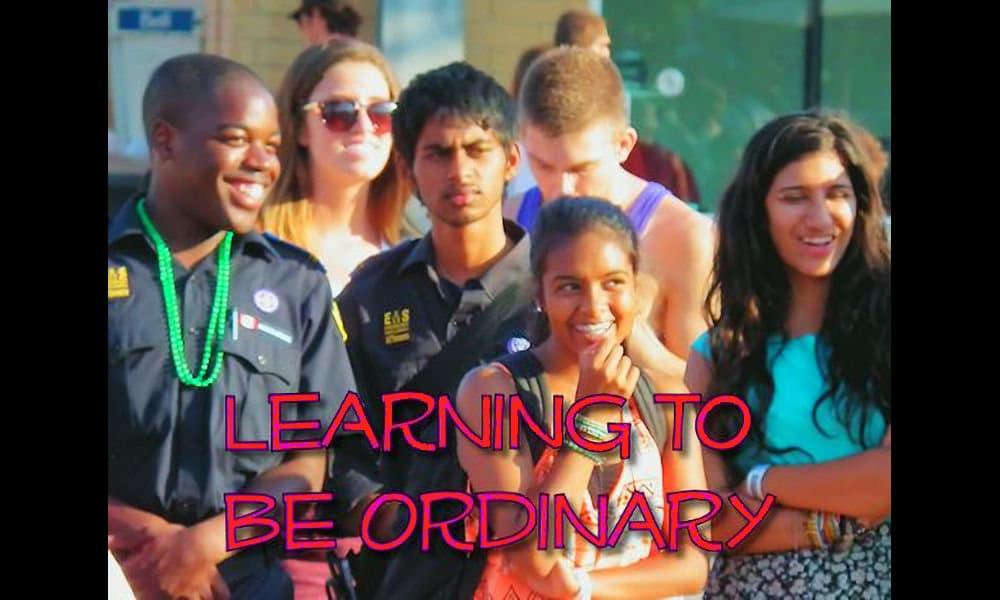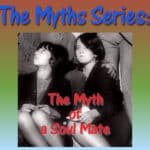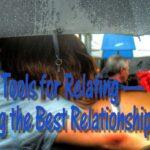Learning to be Ordinary — being ordinary is not boring. It’s using our selves fully, without comparison to others. It’s being present and content, without comparison.
This topic is described in my book, Half Asleep in the Buddha Hall. You can read more about it here
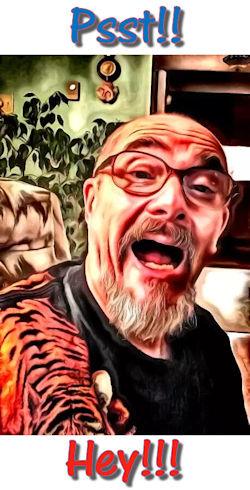
Want to learn more about living a full and meaningful life?
Want to have the best relationship ever?
Check out my books
So, have you ever heard of “Placeholder Theory”? As I listen as friends try to come up with the meaning of their lives, I often hear some version of it.
In Zen, another way of looking at “things” happens as we explore the interplay of “light / darkness.” For example, in The Blue Cliff Record, we read,
Yun Men imparted some words saying, “Everyone has a light; when you look at it, you don’t see it and it’s dark and dim. What is everybody’s light?”
~~~~Yun Men
He himself answered on their behalf, “The kitchen pantry and the main gate.” He also said, “A good thing isn’t as good as nothing.”
The universal problem is this: there are two simultaneous realities (you can call them light and dark, as above.) In one reality I exist (and things exist) as unique and special. In the other reality, everything just “is.”
The other day, a friend told me about a book she’s reading, and the book’s premise is that we design our lives, point by point, before we’re born. We even create “choice points,” where the road forks depending on what we do.
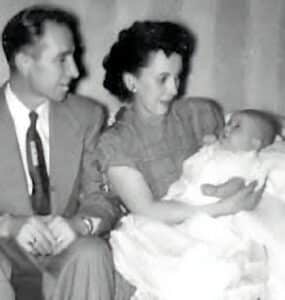
“No, I think we’re stuck with him…”
Apparently, all of this starts when we choose our parents. Yeah.… Right…
“Really? But… what if my parents chose me, when they were designing their life?” Or, what if “I” got chosen by more than one set of parents? Did they fight it out? And if I chose my parents, did they get to say no, or were they stuck with me?
I suspect they were stuck with me, because the whole system depends on “me” being the “real, important person,” while everyone else on the planet has somehow agreed to be a bit player in my drama.
And, of course, this means that my friend is also a bit player in my life. And my friend has kids, so doesn’t that mean she was chosen to play a role in their lives, and therefore is a bit player there, too?
Another version of this weirdness is called The Placeholder Theory
The Placeholder Theory comes from parking spaces, and is something I’ve heard a million variations of — sometimes in jest, but usually semi-seriously.
I’ll give you a common illustration, and then we’ll spend a little time exploring the theory’s uses and abuses.
Here’s the theory: some people serve as placeholders for others.
There is the primary person, (I chose my parents!”) and the bit players, who provide experiences the primary person needs in order to learn.
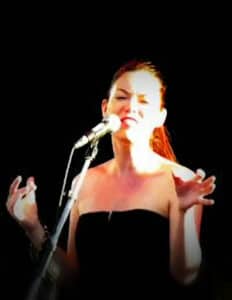
Here, finally!, is an example: Emma Entitlement is late for a meeting. So she puts out “a vibe,” (prayer, intention, whatever) and as she approaches her destination, someone (the placeholder) backs out of a parking space right in front of her destination.
I’ve heard this story (and specifically the parking spot version) from many people.
What I’ve never heard is someone “owning” the placeholder role: “Yeah, I was going to leave the parking lot, and then I got this vibe that I should wait a bit. When I did pull out of the parking space, I looked in the rear view mirror, and the guy who took the spot — boy was he looking pleased! I’m so glad I could be his placeholder, even if it meant I was late for work!!”
In other words, most folk resist the idea that they are in the placeholder role for others.
I call this the arrogance of the quasi-wise.
We who profess to “get it” are often caught in our delusions.
And one of the biggest delusions is the idea that “getting it” means we are special. That we are here to learn, and others are here to support our learning. That our role is to “make a difference” that others will notice and admire.
We really believe that we have been working hard to get here (wherever “here” is”) and we rebel at the notion that our role is placeholder for someone who “gets” more than we do.
Here’s the problem: If I think that others are placeholders for me, and you think others are placeholders for you, then we all need to look in the rear view mirror the next time we exit a parking slot, just to catch a glimpse of who we are place-holding for!
Because you can’t have one without the other. It has to work both ways.
This is the point of the Blue Cliff Record I mentioned above. Light, in this case, is similar to “getting it.” The question is, what are you hooked on?”
What I mean is, if you think you “get it,” or are “getting it,” you are hooked on the idea of how special you are. “See!!! I get it!!! I’ve done the work!!! I see the light!!!”
Except, en-light-enment (Learning to be Ordinary) is not special. It’s right here, right now, and it is all about simple presence. As soon as you think it, or you, is special, the light goes poof, and you’re lost.
The light is the kitchen and the gate. It’s everything and everyone (even Trump! Yikes!) As soon as I have an opinion about it, the light goes poof. Thus, “A good thing isn’t as good as nothing.”
If I create an enlightenment scale and place myself on it, there are always going to be people “further along.” So long as I’m looking “down” on others, I can feel “special.” But as soon as I look “up — ” Yikes!
The way out is Learning to be Ordinary — the ordinariness of simple presence and being.
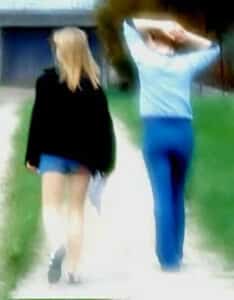
Learning to be Ordinary is “just getting on with it.” Doing what I do because that is what I do. Learning what I learn because that’s the lesson I choose. It’s understanding that far from being an up / down system, life is a balanced ecology.
I depend on you, you depend on me, and actually, we are, at our core, the same entity.
We’re all in this together, and “special,” “secret learnings and paths,” placeholders — it’s all a game to futz with the reality that we are here to get over ourselves, and to get on with what we choose to focus on.
Ram Dass used to say that his process was, “nobody special training.” And then he’d talk about getting caught in his ego, and using his “guru status” to get all kinds of special favours. (“Want to come up to my room and see my holy pictures?”)
He told these stories with a rueful smile, as getting caught in this game is a part of the human condition. The real game is to wake up enough to notice the gme you are playing, and then… to choose another way. Because “A good thing isn’t as good as nothing.”
I wrote about my own games and evasions in my book, This Endless Moment, in the chapter on Deconstruction. Being “The Minister!” got me all kinds of perks, until I couldn’t sustain the game.
Learning to be Ordinary equals “Having a sole focus on presence during the walk of life.”
The real reason therapy (any therapy) works (when it works) is that the therapist and the client are fully present with each other. It is much more so the presence as opposed to the technique. In presence, we can drop our stories and evasions, work on what hurts, and let go of specialness.
If I am present and focussed, then there are no ups and downs, no better or worse, no right or wrong, no clean and dirty. There are no placeholders, because there is no difference between me and not me. It is as if the stuff of the universe is everywhere, and appears in different, unique forms, but is always what it is at its essence.
Sounds pretty mystical, right?
Nonetheless, it is the nature of the universe, down to its core. Light and dark, dancing.
There is no real satisfaction from thinking, “I am better than ‘Joe’ and worse than ‘Sally.’ ” Oue egos desperately want us to play that game, and much of life is wasted on comparisons, but to use a contemporary experience, “In a fire-storm, everyone is equal.”
Nature is there to remind us that the cosmos really does not play favourites. We live in an essentially neutral universe. We all put our pants on one leg at a time, all are born and die alone.
We are on the walk until we aren’t. The quantity of the days of our lives is totally out of our hands. Ah, but the “quality” — that’s another story.
Yet, because each of us has to continually deal with our sense of specialness (entitlement, the ego voice screaming in our heads, whatever) we get caught in inertia — some variant of either helplessness, or stomping our feet and saying “It’s not fair,” or looking for rescue — are common.
Whenever I find myself in that place, I remind myself of a Zen story.
A man goes up the mountain, looking for the Master. After 6 months of looking he’s about to give up. He sees an old man coming down the hill, carrying a bundle of firewood on his back. He asks the old man if he is the Master.
The old man nods.
The seeker says, “What is Enlightenment?”
The old man drops the wood and says “Ahhh!”
The seeker is instantly enlightened.
Then he asks, “What comes after Enlightenment?”
The old Master bends, picks up the wood bundle, and continues down the hill.
This story is expanded upon in my book, Half Asleep in the Buddha HallWhat comes next? Living. Until we aren’t.
Learning. Growing. Understanding.
It’s enough.

